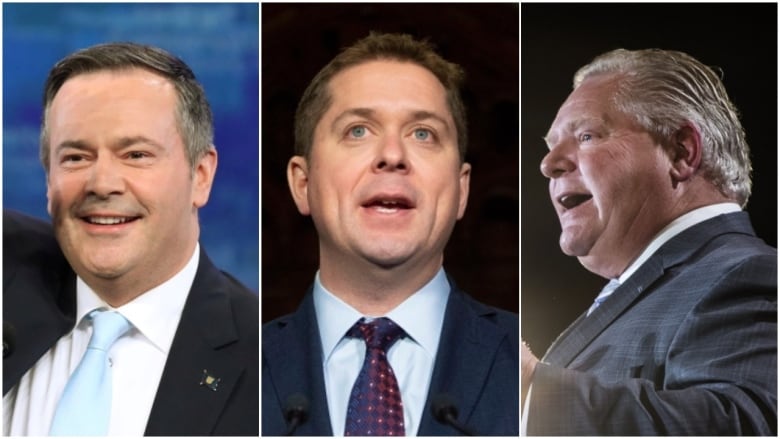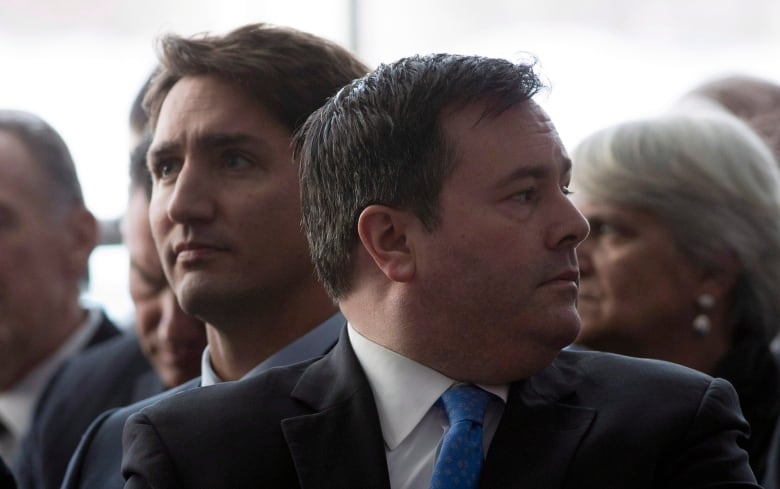Jason Kenney's big win positions him as Canada's true conservative leader, political scientist says
Focus on premiers 'might not necessarily play badly for Andrew Scheer,' analyst says

Jason Kenney's majority election win in Alberta makes him one of the most formidable conservatives in Canada — even more powerful than federal Conservative leader Andrew Scheer, according to one political scientist.
"Andrew Scheer may be leader of the federal Conservative Party of Canada — [but] the conservative leaders are Jason Kenney and Doug Ford," said Duane Bratt, a political science professor at Mount Royal University in Calgary.
Kenney and his United Conservative Party were projected to win or lead 63 of 87 seats after Tuesday's election, a result that ended the province's first-ever NDP government.
In his victory speech, Kenney said the "days of pushing around Albertans with impunity just ended," and vowed to get a "fair deal" with Ottawa on equalization payments, and to fight other provinces and the federal government for pipelines.
Speaking before the provincial election, Prime Minister Justin Trudeau said that he "will, as always, work with whomever a province chooses to elect as their premier."
But with a federal election this fall, Bratt told The Current's Anna Maria Tremonti that he expects Trudeau "is going to talk about the Kenney-Ford or the Ford-Kenney alliance" on the campaign trail.
Shachi Kurl argued that a focus on the provincial premiers "might not necessarily play badly for Andrew Scheer."

"Andrew Scheer may be quite content to ride along this wave of anger ... that grassroots fieriness that we hear from Jason Kenney, that we hear from Doug Ford," said Kurl, executive director of the Angus Reid Institute.
"Scheer's best bet from that perspective may be to just get out of the way and let these guys, to an extent, do his job for him."
Trudeau could focus on 'cagier' Kenney
Of the two provincial leaders, Bratt argued that Kenney was Canada's most powerful conservative even before Tuesday's result, and that "Ford is echoing a lot of Kenney, as opposed to the other way around."
"Kenney is a lot more experienced, a lot cagier, a lot smarter, and has a much larger mandate," he told Tremonti.

Graham Thomson agreed that the prime minister may focus on the Albertan premier-designate in the federal election.
"The thing is Alberta is irrelevant in many ways to Trudeau, in terms of getting any sort of seats or support — he's after B.C., Ontario, Quebec," said Thomson, a former political columnist for the Edmonton Journal, who now contributes to CBC, iPolitics, and Alberta Views.
He told Tremonti that Trudeau could appeal to those voters by going "hard against Jason Kenney in the fall."
Click 'listen' near the top of this page to hear the full conversation.
Written by Padraig Moran, with files from CBC News. Produced by Idella Sturino and Michael O'Halloran.
